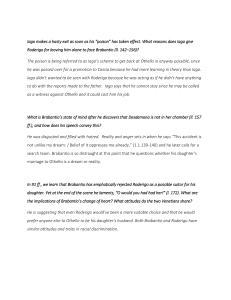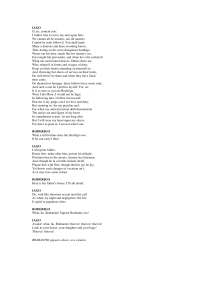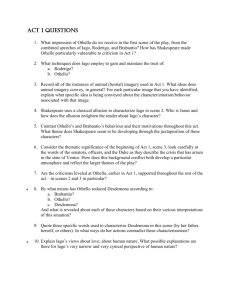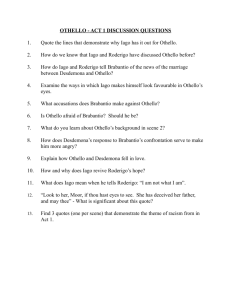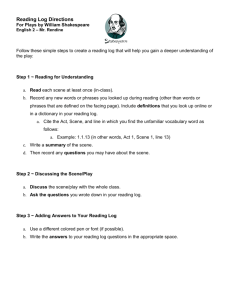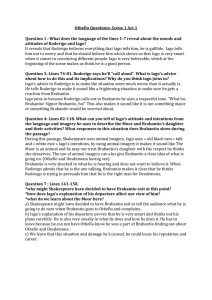Othello - Scene 1 questions - Jamie
advertisement
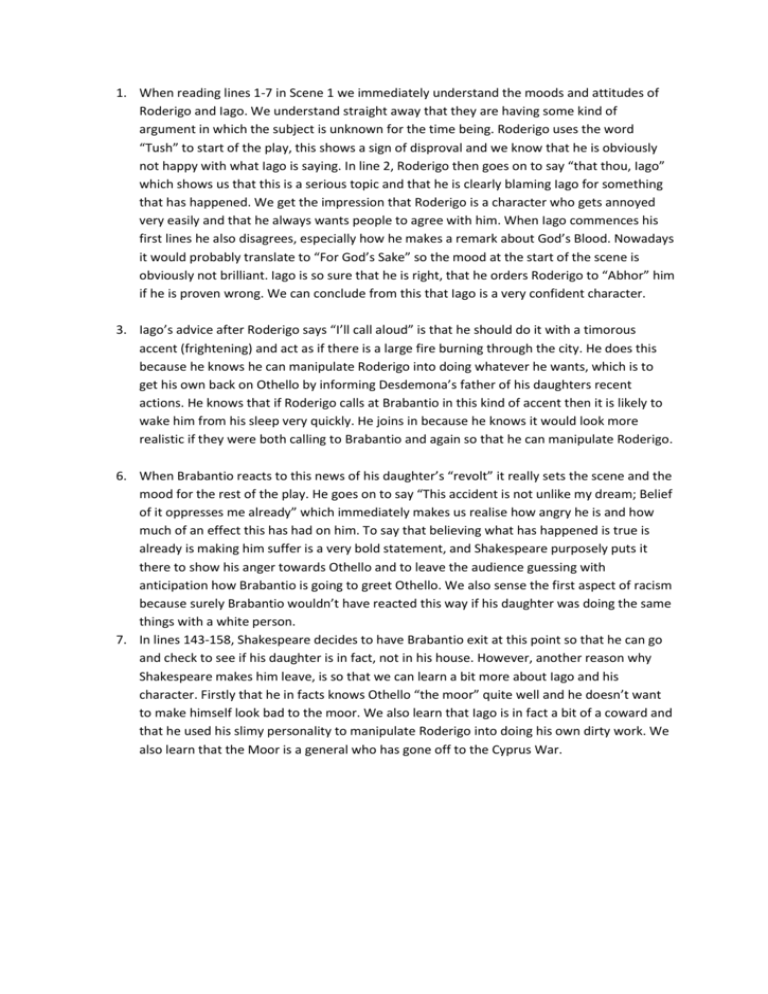
1. When reading lines 1-7 in Scene 1 we immediately understand the moods and attitudes of Roderigo and Iago. We understand straight away that they are having some kind of argument in which the subject is unknown for the time being. Roderigo uses the word “Tush” to start of the play, this shows a sign of disproval and we know that he is obviously not happy with what Iago is saying. In line 2, Roderigo then goes on to say “that thou, Iago” which shows us that this is a serious topic and that he is clearly blaming Iago for something that has happened. We get the impression that Roderigo is a character who gets annoyed very easily and that he always wants people to agree with him. When Iago commences his first lines he also disagrees, especially how he makes a remark about God’s Blood. Nowadays it would probably translate to “For God’s Sake” so the mood at the start of the scene is obviously not brilliant. Iago is so sure that he is right, that he orders Roderigo to “Abhor” him if he is proven wrong. We can conclude from this that Iago is a very confident character. 3. Iago’s advice after Roderigo says “I’ll call aloud” is that he should do it with a timorous accent (frightening) and act as if there is a large fire burning through the city. He does this because he knows he can manipulate Roderigo into doing whatever he wants, which is to get his own back on Othello by informing Desdemona’s father of his daughters recent actions. He knows that if Roderigo calls at Brabantio in this kind of accent then it is likely to wake him from his sleep very quickly. He joins in because he knows it would look more realistic if they were both calling to Brabantio and again so that he can manipulate Roderigo. 6. When Brabantio reacts to this news of his daughter’s “revolt” it really sets the scene and the mood for the rest of the play. He goes on to say “This accident is not unlike my dream; Belief of it oppresses me already” which immediately makes us realise how angry he is and how much of an effect this has had on him. To say that believing what has happened is true is already is making him suffer is a very bold statement, and Shakespeare purposely puts it there to show his anger towards Othello and to leave the audience guessing with anticipation how Brabantio is going to greet Othello. We also sense the first aspect of racism because surely Brabantio wouldn’t have reacted this way if his daughter was doing the same things with a white person. 7. In lines 143-158, Shakespeare decides to have Brabantio exit at this point so that he can go and check to see if his daughter is in fact, not in his house. However, another reason why Shakespeare makes him leave, is so that we can learn a bit more about Iago and his character. Firstly that he in facts knows Othello “the moor” quite well and he doesn’t want to make himself look bad to the moor. We also learn that Iago is in fact a bit of a coward and that he used his slimy personality to manipulate Roderigo into doing his own dirty work. We also learn that the Moor is a general who has gone off to the Cyprus War.
